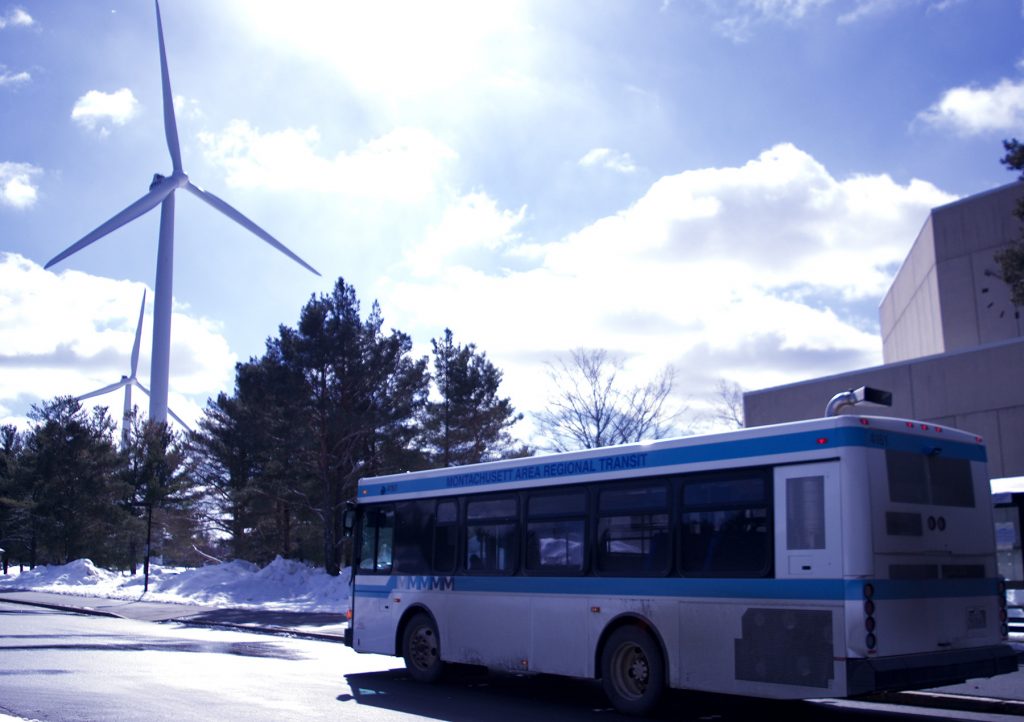By Sophia Schlegelmilch | Editor in Chief

Photo by Betsabee Torres
For MWCC students who can’t get to school by car, commuting can pose some major challenges.
“Forty percent of MWCC students don’t live in a community that’s served by MART,” said Dean of Students Jason Zelesky at a Transportation Information and Listening session in early February.
“We serve 29 cities and towns, most of which are not served by MART at all,” said Zelesky.
According to Shelley Nicholson, Director of the Brewer Center for Civic Learning and Community Engagement, information gathered from several listening sessions and surveys indicated that the biggest obstacle for students who don’t commute by car is the conflict between class schedules and the MART bus schedule.
“Class ends at, say eleven o’clock, and they can’t get a bus until one, and then they ride the bus for two hours just to get to Fitchburg,” said Nicholson. “That’s the rest of their day. They may have been here for one class and their whole day is shot.” This affects, among other things, their ability to get an afternoon job, she added.
At the information session, Zelesky noted that this impact is greater on students who take classes in the evenings and during the summer semester, when bus service is even less frequent.
One student added that he often has to wait for the bus in Gardner until 4:30 pm, and sometimes has to walk from the bus stop in Fitchburg to his home in Leominster, often in bad weather, if he misses the last bus home.
In more urban areas, students use Uber or Lyft to share rides to school, but Nicholson and Zelesky pointed out that this is not feasible for MWCC students because the region has very few drivers and higher rates for these services.
Nicholson was approached by her colleagues at the Community Health Network of North Central Massachusetts (CHNA 9) and The Montachusett Regional Planning Commission (MRCP) to help assess the transportation needs of the community. CHNA 9 has recently received a grant to gather information and create a pilot program to address transportation deficits in the local community.
Nicholson says that the project is still in the information-gathering stages, so it’s unclear what form the final program will take. In the meantime, she advised students who are struggling with transportation insecurity to contact the Dean of Students Office or the Student’s SOS Office, where they can work one-on-one with staff to develop an individualized solution to their needs.
Comments are closed.